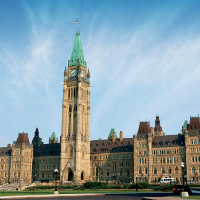atheist bloggers risk their lives: what can we do?
Article Submitted by: Jesse Cnockaert
Sometimes, the difference between accepting or denying a person seeking asylum is a matter of life and death, which is why Centre for Inquiry Canada (CFIC) is taking a hard look at the way Canada treats these cases, to reduce the number of people turned away unfairly.
CFI Canada is embarking on a two-year project to research into current legislation dealing with asylum seekers and refugee claimants of different sexuality, religious/non-religious, racial, and cultural backgrounds.
Our goals are:
- to question the rationality, and the fairness, of current legislation in the way it treats asylum seekers who are at the highest risk of having their cases denied because of an immigration prosecutor’s personal bias, instead of the facts.
- to educate Canadians about the facts of free-thought as a life-risking activity
- to mobilize the Canadian secular community to provide support and information to those who risk their lives by speaking their minds
Sexual minorities, generally referred to as LGBTI (Lesbian, Gay, Bisexual, and Transgender Individuals) as well as atheist or agnostic individuals may be the most vulnerable individuals.
Non-religious people are discriminated against, or face outright persecution, in most countries of the world, according to the Freedom of Thought Report 2013 (1) prepared by the International Humanist and Ethical Union (IHEU). The report, the first of its kind, focused specifically on human rights, legal status and discrimination against humanists, atheists and non-religious people in every country on earth.
The report shows blasphemy can lead to a prison sentence in 39 countries, six of which are western countries.
There are also 13 countries where being an atheist can result in a death sentence.





